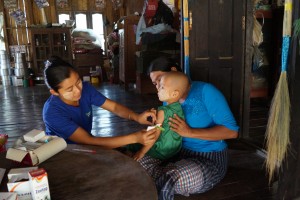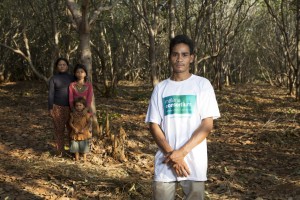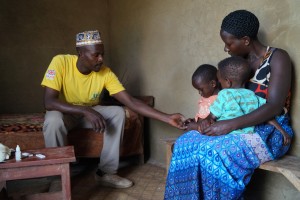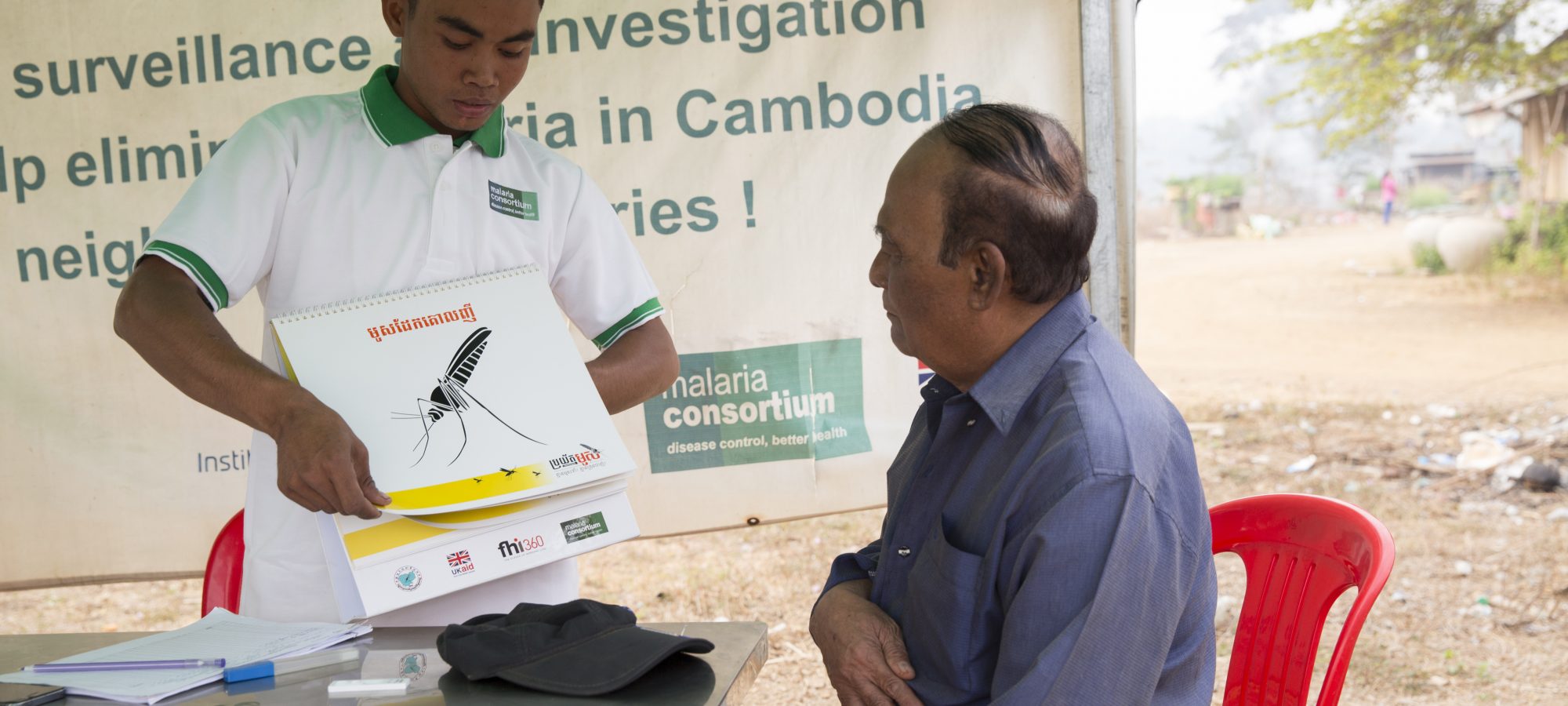To mark the fourth annual World Health Worker Week as well as World Health Day on Friday 7, this article reflects on global health care and recognises the important work community health workers (CHWs) are doing around the globe.
CHWs play a vital role in extending healthcare to rural communities around the world and are often the first point of call for rural communities who lack access to formal healthcare facilities.
Their responsibilities often include educating people about preventive health measures, caring for pregnant women and new born babies and children under five, as well as diagnosing and treating common infectious diseases and childhood illnesses, such as diarrhoea, pneumonia and malaria.
By providing basic health services at the community level, CHWs also act as a vital link between remote communities and the formal healthcare system. This allows the referral of serious cases to health facilities, ongoing supervision from formal health workers, and improved health reporting.

Myanmar: In Sin ‘Elephant’ village, Myanmar, mother of four, Ma May Thient Oo has also been serving her community as a malaria volunteer for the past six years. For the people in Ma’s community, this is an important service. To reach the nearest health centre, they must travel for miles, crossing a river by boat and walking the rest of the way in often extremely high temperatures, which is both expensive and difficult.
To improve health in her community, Ma received training and expanded her services to provide education, diagnoses and treatment, not just for malaria, but also malnutrition, pneumonia and diarrhoea. She can count breathing rates and identify symptoms of common illnesses in her community and only refers people to the health centres when she identifies severe illnesses that she cannot treat.

Cambodia: In Tun Village in northern Cambodia, village malaria worker, Thy Sambath, provides free malaria education, testing and treatment to people in his community. He is a volunteer that wants to improve the health of his people, particularly those who live, work or travel in forest areas and have the highest risk of malaria.
Thy visited the Sreynoeunn family after learning both daughters, aged four and 11, had developed strong fevers. He conducted malaria tests on the girls which both turned out to be positive. Thy then provided the girls with treatment and educated the family about the importance of using mosquito nets while sleeping. Thanks to Thy both girls made full recoveries.

Uganda: Ali Karim Bagyanyi is a Village Health Team member in Kitengule village in Uganda. In this role he provides education as well as free testing for malaria and pneumonia.
In a recent visit, Ali tested a 17 month old girl and four year old boy who had been brought there after developing diarrhoea, fevers and a cough. Both children tested negative for malaria and pneumonia and received appropriate referrals to be treated for their diarrhoea.
It is estimated that half of the nine million children who died in 2015 had illnesses that could have been easily prevented, or diagnosed and treated if they had access to health care services. However, there is currently a global shortage of over seven million health workers and that shortage is set to rise to almost 13 million by 2035. If we are to achieve universal health coverage we must increase investment in community health workers. This World Health Worker Week and World Health Day, join us in supporting health workers around the world.
Watch our video here:
